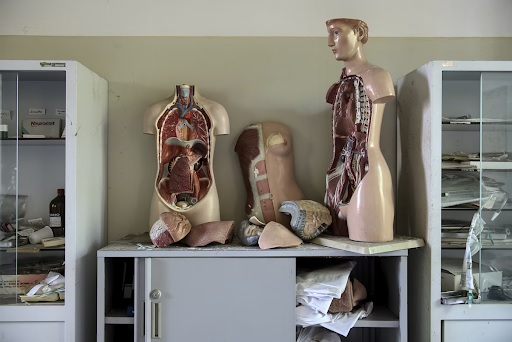Getting a liver cancer diagnosis can feel overwhelming, and you probably have dozens of questions racing through your mind. What happens next? What will treatment look like? How will you feel during the process?
Understanding what to expect during liver cancer treatment can help ease some of that anxiety. While every person’s journey is unique, knowing the general steps and options gives you a sense of control and helps you prepare for what’s ahead.
Getting Started: Diagnosis and Treatment Planning
Once liver cancer is diagnosed, things typically move quickly. Your medical team will order several tests—including CT scans, MRIs, and blood work—to determine the exact stage of your cancer and how well your liver is functioning overall.
You’ll meet with an oncology team that might include a medical oncologist, a surgical oncologist, a radiologist, and possibly a hepatologist (liver specialist). These specialists will review your case together to create a treatment plan tailored specifically to you.
This is the perfect time to ask questions. Write them down beforehand if that helps. There’s no such thing as a silly question when it comes to your health, and understanding your options is crucial for making informed decisions.
Main Treatment Options Explained
Liver cancer treatment isn’t one-size-fits-all. Your team will recommend options based on your cancer’s stage, location, and your overall liver health.
Surgery is often the first choice for early-stage liver cancer when the tumor is small and hasn’t spread. There are two main surgical approaches: partial hepatectomy (removing the cancerous part of the liver) and liver transplant (replacing the entire liver with a healthy donor liver). Your liver has an amazing ability to regenerate, so even if a portion is removed, it can often grow back to near-normal size.
If you’re considering surgical options, finding an experienced specialist is essential for the best outcomes. For those seeking expert care, specialized centers offering liver cancer surgery in Singapore provide comprehensive surgical treatment with advanced techniques and personalized patient care.
Ablation and embolization procedures work differently. Ablation uses heat, cold, or alcohol to destroy cancer cells directly. Embolization blocks blood flow to the tumor, essentially starving it of nutrients. These are often used when surgery isn’t possible or for smaller tumors.
Radiation therapy uses high-energy beams to target and kill cancer cells. Modern techniques like stereotactic body radiation therapy (SBRT) can precisely target tumors while minimizing damage to healthy tissue.
Targeted therapy and immunotherapy are newer approaches that either attack specific cancer cell characteristics or help your immune system recognize and fight the cancer. These treatments have shown promising results, especially for advanced liver cancer, and often come with fewer side effects than traditional chemotherapy.
What to Expect During Active Treatment

Treatment schedules vary widely depending on your specific plan. Some people visit the hospital daily for radiation, while others might have procedures scheduled weeks apart. Your team will give you a detailed calendar so you can plan accordingly.
Side effects are common but manageable. Fatigue is one of the most frequent complaints—your body is working hard to fight cancer and heal from treatment. Nausea, loss of appetite, and skin sensitivity are also possible depending on your treatment type.
The good news? You’re not managing this alone. Your care team includes nurses who monitor your progress, nutritionists who help you maintain proper nutrition, and social workers who can connect you with resources and support. Don’t hesitate to speak up if something doesn’t feel right or if side effects are affecting your quality of life.
Many people continue working or maintaining daily routines during treatment, though you might need to adjust your schedule. Listen to your body. Rest when you need it, stay active when you can, and accept help from family and friends.
Lifestyle Factors and Support During Treatment
One of the most important things you can do during liver cancer treatment is avoid alcohol completely. Alcohol puts additional stress on your liver when it needs all its energy to heal and recover. Even small amounts can interfere with treatment effectiveness and slow your recovery.
If you’ve struggled with alcohol use in the past, now is the time to seek support. Many people find that group support makes all the difference in staying alcohol-free during this challenging time. Resources like AA meetings provide a supportive community where you can connect with others who understand the challenges of maintaining sobriety, which is particularly crucial when your liver health is at stake.
Nutrition plays a huge role in how well you tolerate treatment. Your liver processes nutrients, so eating small, frequent meals with plenty of protein can help maintain your strength. Your nutritionist can suggest specific foods that work with your treatment plan.
Gentle exercise, even just short walks, helps maintain muscle mass and can actually reduce fatigue over time. It also boosts your mood and helps you sleep better.
Don’t neglect your mental health. Cancer treatment is emotionally exhausting. Consider joining a support group, talking with a counselor, or connecting with others who’ve been through similar experiences.
Recovery and Follow-Up Care
After completing treatment, regular monitoring becomes your new normal. You’ll have scheduled scans and blood tests to ensure the cancer hasn’t returned. These checkups gradually become less frequent over time, but staying vigilant is important.
Remember, you’re stronger than you think, and with the right treatment and support, many people go on to live full, healthy lives after liver cancer.



